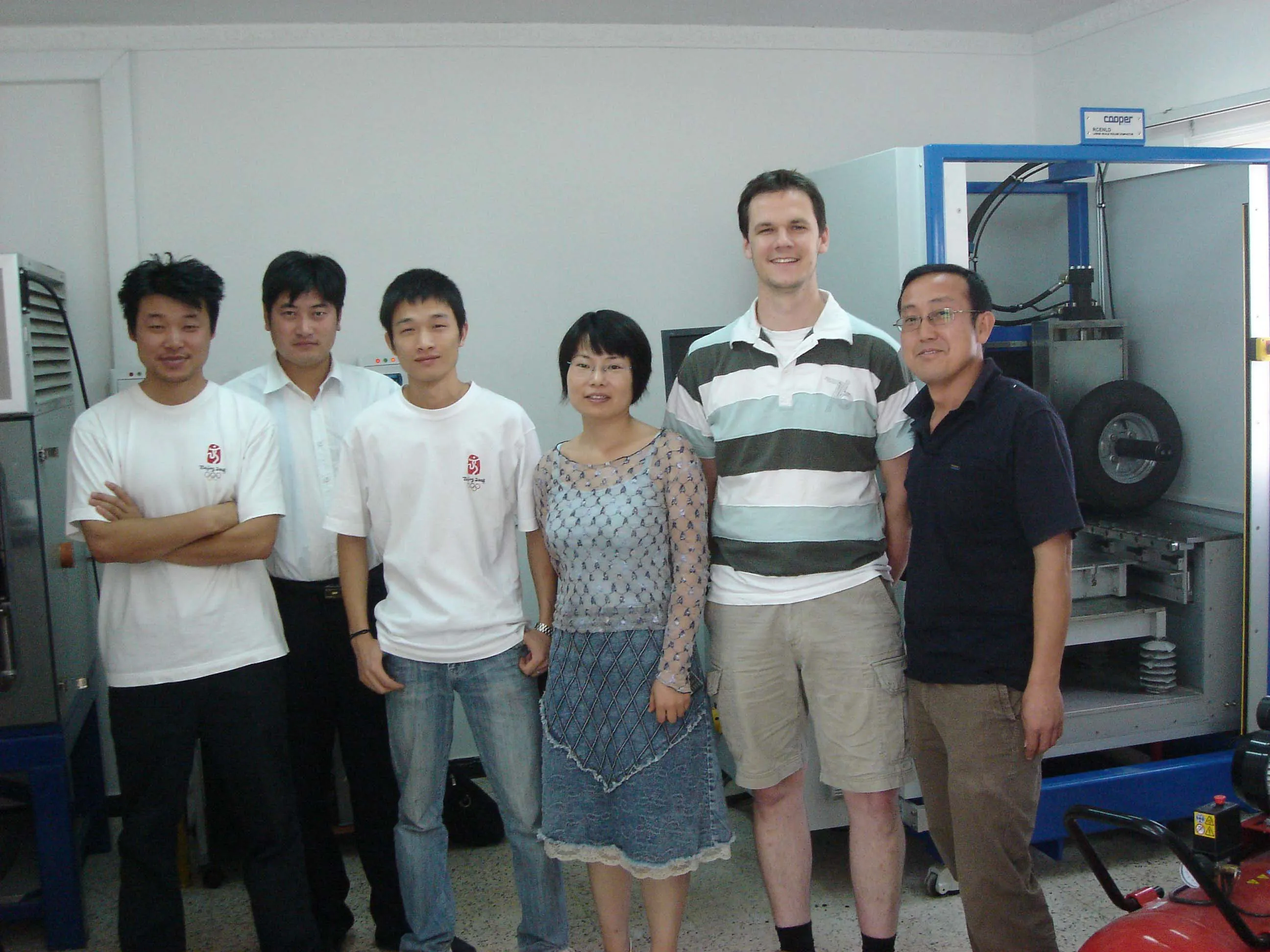UK-based Cooper Research Technology has expanded into the US with the acquisition of James Cox & Sons, of Colfax, California in September 2012, and the appointment of US asphalt expert Dr Geoffrey Rowe as a non-executive director. Cox and Cooper are a good fit culturally. Both firms were founded by inventors – Jim Cox and Keith Cooper – and both are built on strong links with academia: Cox with UC Berkeley and Cooper with NTEC at Nottingham University. “It is the joint intention to be a customer focused bus
January 3, 2013
Read time: 2 mins

UK-based 5941 Cooper Technology has expanded into the US with the acquisition of James Cox & Sons, of Colfax, California in September 2012, and the appointment of US asphalt expert Dr Geoffrey Rowe as a non-executive director.
Cox and Cooper are a good fit culturally. Both firms were founded by inventors – Jim Cox and Keith Cooper – and both are built on strong links with academia: Cox with UC Berkeley and Cooper with NTEC at4813 Nottingham University.
“It is the joint intention to be a customer focused business. We listen and we care,” said Cooper. “The Cox and Cooper approach is to first establish customer requirements and then to offer best advice on the options available in order that customers can make informed decisions. We will pride ourselves on working in partnership with customers rather than just order taking.”
Dr Rowe will strengthen the expertise of the business, working alongside research director Andrew Cooper. Dr Rowe is a member of the US Expert Task Group on asphalt binders and teaches asphalt materials at3986 New Jersey Institute of Technology. With over 50 publications to his name, he is currently leading several research efforts on the performance of materials and the development of specifications.
Now Cooper, through Cox, is poised to start manufacture of the first commercially available Texas Overlay Tester (TOT). Designed to simulate the expansion and contraction movements that occur near cracks or joints and which result in reflection cracking in overlays, the TOT performs the test according to the draft ASTM method, soon to be published in its final form.
“At present there is nobody manufacturing these machines commercially,” said Andrew Cooper. “The only machines in existence are in DoTs or universities in the US.”
The TOT allows users to characterise both the crack initiation and crack propagation properties of asphalt mixtures. Though the original machine was developed in the 1970s, the current appetite in the US for simple tests that allow easy comparisons between mixtures is driving the TOT’s popularity.
“Some people have attempted to perform the test in UTMs or the SPT, but I believe that dedicated equipment is easier to operate and produces more accurate results,” said Andrew Cooper.
Cox and Cooper are a good fit culturally. Both firms were founded by inventors – Jim Cox and Keith Cooper – and both are built on strong links with academia: Cox with UC Berkeley and Cooper with NTEC at
“It is the joint intention to be a customer focused business. We listen and we care,” said Cooper. “The Cox and Cooper approach is to first establish customer requirements and then to offer best advice on the options available in order that customers can make informed decisions. We will pride ourselves on working in partnership with customers rather than just order taking.”
Dr Rowe will strengthen the expertise of the business, working alongside research director Andrew Cooper. Dr Rowe is a member of the US Expert Task Group on asphalt binders and teaches asphalt materials at
Now Cooper, through Cox, is poised to start manufacture of the first commercially available Texas Overlay Tester (TOT). Designed to simulate the expansion and contraction movements that occur near cracks or joints and which result in reflection cracking in overlays, the TOT performs the test according to the draft ASTM method, soon to be published in its final form.
“At present there is nobody manufacturing these machines commercially,” said Andrew Cooper. “The only machines in existence are in DoTs or universities in the US.”
The TOT allows users to characterise both the crack initiation and crack propagation properties of asphalt mixtures. Though the original machine was developed in the 1970s, the current appetite in the US for simple tests that allow easy comparisons between mixtures is driving the TOT’s popularity.
“Some people have attempted to perform the test in UTMs or the SPT, but I believe that dedicated equipment is easier to operate and produces more accurate results,” said Andrew Cooper.







